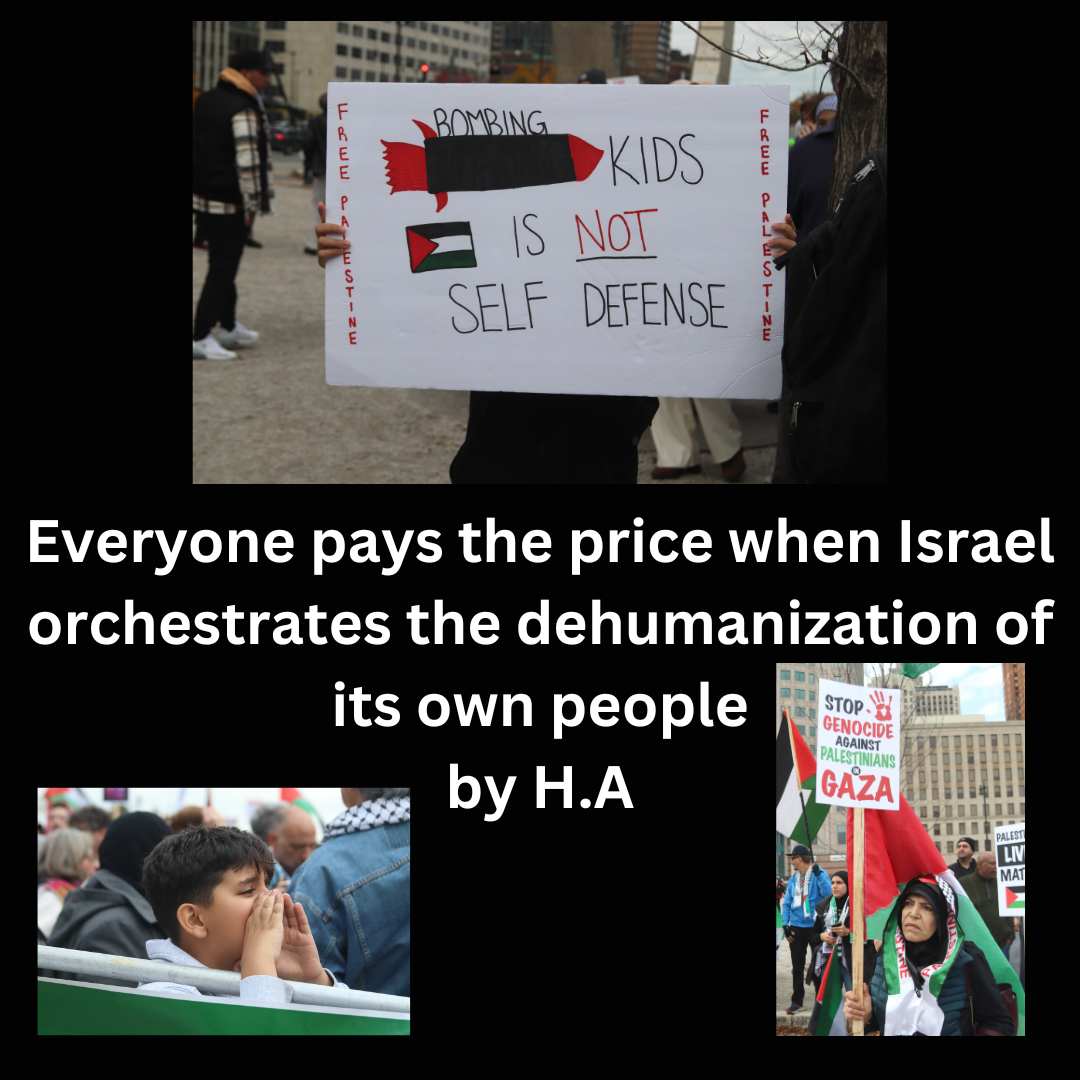I will not start by recounting the number of Palestinians Israel has murdered since October 7, nor emphasizing how many of them are women and children.
I will not beckon you into this trap where the youthful Palestinian bodies that dare to survive and become adult male Palestinian bodies somehow earn the violence inflicted upon them. Where the only way a slain Palestinian can be looked upon kindly is if they are weak, submissive, helpless.
I will not recite the final words of doctors and journalists and refugees spoken before relentless Israeli bombing wipes them off this Earth. I will not recite the final words of academics and queer teenagers murdered by the tens of billions of dollars of American aid that may otherwise have been spent on such frivolities as healthcare for Americans.
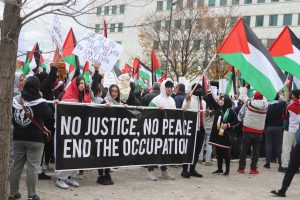
Final words that I know far too well because I see them every time I open a social media app to bear witness. And though I know tech giants designed their algorithms to make a profit off precious life as it is snuffed out in real time, I feel too guilty to avert my eyes.
I open the apps bracing myself for the news that the airstrikes may have claimed the 16 year old who wants to be a reporter and updates his followers on the newest in Gaza, masking the terror in his eyes with terrible puns to keep us, somehow, entertained. I am glued to my social media feeds, hoping to find out whether hospitals are still clinging to life, and whether refugee camps are still standing. (They’re not.)
No, I will not spend one more second trying to humanize Palestinians to you.
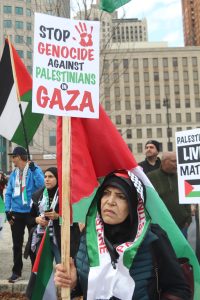
While Israel and its Western patrons continue to dehumanize us to the world to justify our extermination, we Palestinians have spent decades auditioning, in the words of Palestinian-American poet, Hala Alyan, for empathy and compassion.
No more, not from me.
If you don’t see the breathtaking humanity of every single Palestinian out there, I want nothing to do with you. If you don’t grasp the equal righteousness in a curious child, a grieving mother, an innocent bystander, or –pay close attention here– a furious and violent resistance fighter, move on. I am simply not interested.
But I will talk about how, as Israel dehumanizes us, it also orchestrates the dehumanization of its own citizens. It sustains the violence inherent to its occupation by making it impossible for Gazans to see Israelis as anything other than tormentors. It strips them both of the right to live peacefully on this land.
Consider this: A majority of Gazans alive today–far fewer than were alive a few weeks ago–were born in captivity, and have never been allowed to leave the little strip of land to which they have been confined.
For a bit of context, Israel began imposing a suffocating siege on the territory in 2007, and most Gazans alive today have only ever known a seaside life in which a military whose language they do not speak decides when they can receive potable water to quench their thirst, fuel to operate their schools and hospitals, food to sustain their bodies, toys to keep them engaged, medicine to heal them.
A teenage boy born in Gaza in 2007, like the aspiring journalist I mentioned above, has survived extended Israeli bombardment and military assault campaigns (funded always by US tax dollars) in 2008, 2009, 2012, 2014, 2018, 2019, 2021, 2022 and, of course, 2023.
By Israeli design and as a result of the siege, the only Israeli Jew a 16 year-old in Gaza has likely encountered over the course of his entire life is a soldier in the occupying military.
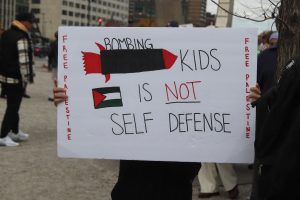
It’s not that this Gazan boy hasn’t interacted with Israelis and therefore cannot understand their humanity. Most of us haven’t met most kinds of people in the world and can, hopefully, still understand their innate humanness.
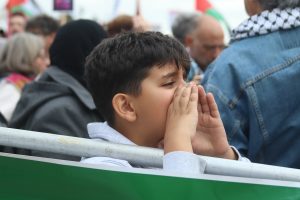
It’s that for most of the thousands of Gazans who burst out of captivity on October 7, violently murdering Israelis and taking them hostage, it was the first time they had ever breathed the same air as an Israeli who was not wearing the military uniform of their oppressor.
The first time they had ever seen an Israeli dance, unencumbered by a weapon put in their hand by the United States government (are you tired of me repeating this yet?).
Of course, this Gazan teenager cannot conceptualize in his head, in his soul, the idea of an innocent Israeli.
When every single Israeli he has ever come across was responsible for his degradation, for his family’s hunger and thirst and trauma, for his school friend being buried under the rubble that used to be a house, how is the Gazan teenager to realize what Israeli joy looks like? Israeli innocence? Israeli peace?
I hate Hamas. I grew up queer in a secular Palestinian house in the diaspora. The Islamist movement that has shown disdain for my identity in both rhetoric and action will never be the political party for me. But I cannot, in good conscience, condemn what Hamas did on October 7.
The deaths we saw that day were excruciatingly painful to witness and morally and practically abhorrent. I am able to hold the pain of those who have been cast as my enemy and empathize with their unimaginable grief. I am able to wish these families were not experiencing these horrors, and were not enduring all that pain.
I am able to do that because I am a diasporic Palestinian living in a Western country with many “flagrant privileges”, including clean running water, readily available medicine, warm food, and a home to lay my head down, knowing that I will not be flattened by bombs in my sleep.
I have the luxury of being able to explore how this ongoing trauma is showing up in my body, to understand in which parts of myself that trauma may be degrading my abilities for empathy and compassion. I have the luxury of working on these issues, attempting to heal and overcome them, and ponder both sides of the issue, in relative safety and peace.
It is not so for Gazans.
Last year, for Riverwise, I wrote about the transitive property of oppression, wherein people living under occupation impose new structures of power within their societies and grasp for whatever passes as control over minorities, like Palestinian Christians or queer folk. I believe Hamas, wielding what little power it has, oppresses some people in Gaza. I wish almost any other political group were dominant in Gaza.
But I also believe that in the lead up to October 7, some Palestinians thought they faced no option but violent resistance.
After 75 years of a brutal occupation, where every peaceful attempt at resistance by a Palestinian has been met with crushing force at home or legislative suppression abroad, what are resistance fighters to do?
Indeed, when hundreds are killed during peaceful protests in Israel and arrested in peaceful protests in the west, refugees lose their humanitarian status for supporting Palestinian liberation, and entirely non-combative movements to boycott products that sustain the Israeli economy are slandered as terrorism and criminalized, how can resistance fighters be blamed for rising up against their oppressor?
In the West Bank, the toothless Palestinian Authority ‘governs’ Palestinians, violently clamping down on peaceful protests and allowing Israeli settlers to brutalize them. In Gaza, Hamas fighters are trapped alongside the 2.3 million people in the open-air prison it ‘governs’ while Israel guards the gates and starves the people it is attempting to annihilate.
How can we blame them for bursting out of captivity when every single other means fails? How can those of us living in the West not see our own desires for self determination, self preservation, and agency reflected in the violence directed at the settlers who continue to steal Palestinian land and homes?
Where is there to go but out? How do they get out if not violently?
H.A is a Palestinian journalist who worked as a reporter and translator in Jordan, where he grew up, and in the United States, where he moved during the pandemic. He has also been involved in organizing for queer and Palestinian (and queer Palestinian) causes since 2014. In 2022, he moved to the United Kingdom to work in advocacy.

